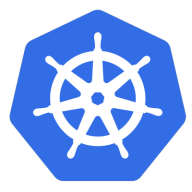

Kubernetes and Nutanix Kubernetes Platform (NKP) are key players in the container management and orchestration category. Kubernetes generally has the upper hand due to its extensive scalability and open-source community support, which are significant factors in robust and flexible deployment scenarios.
Features: Kubernetes is recognized for scalability, automation, and flexibility, allowing seamless application deployment across AWS, Google Cloud, and Azure. It also includes self-healing and built-in scaling capabilities. Nutanix Kubernetes Platform (NKP) is valued for its ease of deployment, integration with hybrid cloud environments, and enhanced logging and monitoring through open-source tools.
Room for Improvement: Kubernetes users seek simplification of management complexity and a modernized dashboard interface. There's a demand for more intuitive operations and expanded support for community toolsets. Nutanix Kubernetes Platform (NKP) requires enhancements in migration processes, backup and recovery features, and better marketplace offerings for increased integration.
Ease of Deployment and Customer Service: Kubernetes offers flexibility across hybrid, private, and public clouds but often relies on community-based support, which can be less responsive. NKP aligns closely with existing Nutanix infrastructure for straightforward deployment in hybrid and on-premises environments, with direct support from Nutanix, though service response can occasionally vary.
Pricing and ROI: Kubernetes, being open-source, offsets licensing fees but can incur costs related to management. It offers significant ROI via cost savings and improved deployment speeds, although smaller enterprises might find scaling expensive. NKP, while costlier, provides enterprise-grade features that justify investment, particularly for large businesses, with both platforms delivering ROI through quicker time to market and enhanced application management.

| Company Size | Count |
|---|---|
| Small Business | 26 |
| Midsize Enterprise | 10 |
| Large Enterprise | 47 |
| Company Size | Count |
|---|---|
| Small Business | 2 |
| Midsize Enterprise | 3 |
| Large Enterprise | 3 |
Kubernetes (K8s) is an open-source system for automating deployment, scaling, and management of containerized applications.
It groups containers that make up an application into logical units for easy management and discovery. Kubernetes builds upon 15 years of experience of running production workloads at Google, combined with best-of-breed ideas and practices from the community.
Nutanix Kubernetes Platform (NKP) offers a comprehensive solution for managing Kubernetes environments, catering to complex enterprise requirements with robust functionality and ease of use.
NKP delivers an integrated approach to deploying, managing, and scaling Kubernetes clusters. It simplifies operations with features that enhance scalability, security, and efficiency. By offering seamless integration with existing infrastructure, it eases the transition to a cloud-native ecosystem, enabling enterprises to leverage Kubernetes to its fullest potential.
What are the most important features of NKP?NKP finds application in industries ranging from healthcare to finance, where reliable and scalable infrastructure is critical. In healthcare, it aids in managing sensitive data with strict compliance requirements. The finance sector benefits from its ability to securely handle large volumes of transactions while ensuring high availability.
We monitor all Container Management reviews to prevent fraudulent reviews and keep review quality high. We do not post reviews by company employees or direct competitors. We validate each review for authenticity via cross-reference with LinkedIn, and personal follow-up with the reviewer when necessary.